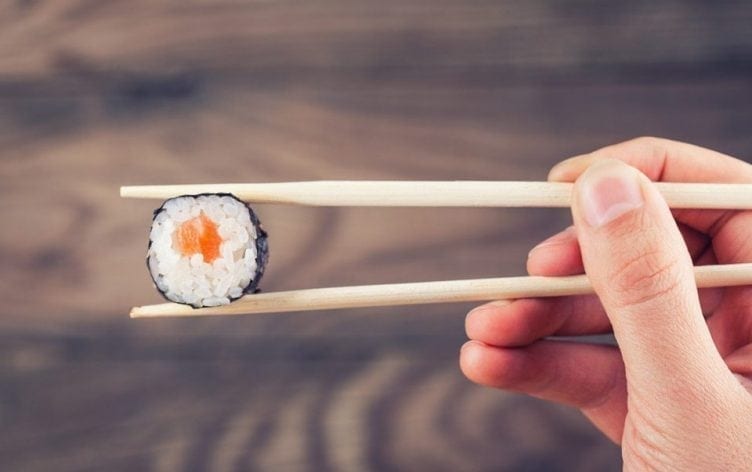
We all know that calories matter a lot when it comes to weight loss. As long as you eat fewer calories than you burn, you should lose weight. The logic is sound for most healthy adults, but we can also take that logic too far. In the case of healthy, sustainable weight loss, more restriction doesn’t always lead to better weight loss. In fact, regularly eating too few calories can put you at risk of malnutrition, resulting in unhealthy weight loss and nutrient deficiencies.
To prevent this, MyFitnessPal automatically has a minimum daily calorie goal of 1,200 calories per day for women and 1,500 calories per day for men. These minimums, based on recommendations from the National Institutes of Health, ensure the majority of us trying to lose weight do so safely and get enough essential nutrients from food to prevent malnutrition.
WHAT REALLY HAPPENS WHEN YOU CHRONICALLY UNDEREAT?
The difference between fasting and chronically undereating (which can lead to starvation) is a matter of duration. Fasting is commonly practiced on a timescale of several hours, but while the term has earned itself a bad reputation from notorious fasting or “detox” diets (think: cayenne pepper diet), fasting for weight loss can be safe. Our bodies were actually designed to handle short-term fasts, like when we don’t eat for eight hours during sleep. We also go anywhere from 4–8 hours without eating when we skip meals during life’s busier moments.
On the other hand, going without food for several days or eating less than the calorie minimum for weeks to months puts you at risk of malnutrition. As well-nourished individuals, we do carry enough stored fuel to meet our needs for 1–3 months in the form of muscle tissue and fat. However, our body can only store 1–2 days’ worth of glycogen (the body’s carbohydrate stores), which, if not replenished, is quickly used up to maintain blood sugar.
After several days of undereating, the body switches to energy-conservation mode, meaning your metabolism slows way down, making you feel tired and edgy. As carbohydrate stores run low, protein and fat become the dominant sources of fuel. After 48 hours without food, your body runs out of glycogen to power the two organs that need it the most: red blood cells and the brain. While glucose is the only fuel blood cells can run on, the brain will begin to adapt to power itself with ketone bodies made from fat. To meet basic energy needs, your body ramps up breakdown of muscles and organs in addition to fat.
To learn more about how your body fuels itself, check out A Beginner’s Guide to Your Metabolism.
IS IT EVER OK TO UNDEREAT?
Although it’s not advisable for the average adult to eat less than the calorie minimum, there are individuals who benefit from following a medically supervised “very low calorie diet.” The National Institute of Diabetes and Digestive and Kidney Disease defines a very low calorie diet (VLCD) as eating less than 800 calories per day. Eating at such a low calorie level makes it very difficult to obtain all the essential vitamins and minerals through just food alone. This diet involves eating specialized shakes, soups and bars that can fit in more micronutrients per calorie and regular check-ins with a doctor who specializes in weight loss. It’s not a good idea to jump into a VLCD without checking with a health professional to determine if you are a good fit. Even so, a VLCD is meant to last 12 weeks at most—enough time for someone who has a lot to lose to jump start their weight loss.
3 REASONS WHY UNDEREATING IS A BAD IDEA
For most of us, consistently eating less than the calorie minimum is a bad idea because it leads to a:
- Slower metabolism and lousy side effects. With too few calories on board to power you through your daily activities, your body learns to live on less by significantly slowing your metabolism. Short term, you may feel sluggish, irritable and apathetic. Once you stop undereating, it takes awhile before your body to recover and your metabolism to rev back up.
- Loss of valuable muscles and organs. Just because you’ve adapted to using ketone bodies doesn’t mean your body won’t need glucose at all. A minimum blood glucose level must be maintained to keep you alive so your body continues to break down muscles and organs. It’s a major problem in the long run, because your body doesn’t distinguish between essential tissues (think: heart, kidney, blood cells) and less essential tissues (think: skeletal muscle). Over time, this breakdown weakens and damages your vital organs.
- Higher risk for nutrient deficiencies. Eating very few calories will also decrease the variety of foods you can eat, increasing your risk for nutrient deficiency. The type of nutrient deficiency that can occur depends on the food(s) that are being restricted. While not everyone who chronically undereats can automatically be diagnosed with an eating disorder, anorexia gives insight on the types of nutrient deficiencies that are likely to occur from prolonged starvation. This includes but isn’t limited to deficiencies in calcium, iron, zinc, vitamin D and the B vitamins, in addition to dangerous electrolyte imbalances and protein malnutrition.
Every body is different, so it’s important to experiment and see what works best for you. Just know that undereating is not a good long-term solution for living a healthy life or achieving or maintaining weight loss.

